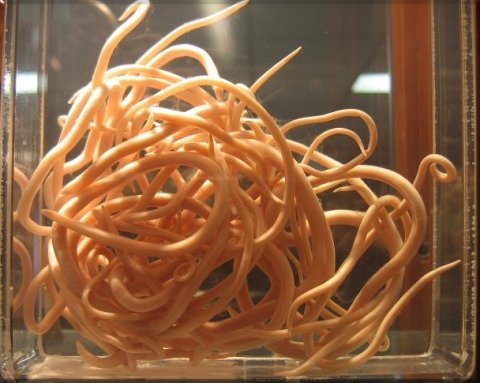
New research from Hillblom Center for the Biology of Aging, San Francisco, claims the secret to anti-ageing could lie with roundworms.
Biochemist Cynthia Kenyon and her team at the Hillblom Center for the Biology of Aging, have managed to prolong the life of roundworms six-fold.
The tiny roundworm has an exceptionally short lifespan; elderly at 10 days and dead within two weeks.
Cynthia Kenyon’s team have slowed the species’ ageing process and bred roundworms to the age of 84 days – which in human terms would make them 480 years old.
“You have something you never thought was possible,” Cynthia Kenyon told ABC News.
“These worms should be dead, a long time ago. But they’re not dead. They’re moving. They’re young.”
The reaserchers did it by manipulating one particular gene in its DNA, known as daf-2.

The same gene is present in humans and people who live to 100 tend to exhibit mutations to the gene, said Cynthia Kenyon at the Technology, Entertainment and Design (TED) conference in Edinburgh.
Mutations to the daf-2 gene would help to explain why different animals have such significantly differing lifespans.
While the roundworm is dead inside a fortnight and the mayfly inside a day, tortoises can live for up to 188 years and koi fish can live to 200.
As a result of the research, Cynthia Kenyon claimed that youth-boosting drugs could be available within 15 years.